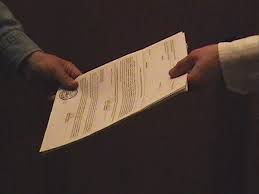Accurate Serve
Process Serving in the Digital Age
 In today’s rapidly evolving world, technology impacts nearly every aspect of our lives, and the field of process serving is no exception. The digital age has brought about significant advancements in how legal documents are served, making the process more efficient and reliable. At Accurate Serve® of Tallahassee, we are committed to leveraging these technological advancements as they become legal in Florida to provide exceptional service to our clients.
In today’s rapidly evolving world, technology impacts nearly every aspect of our lives, and the field of process serving is no exception. The digital age has brought about significant advancements in how legal documents are served, making the process more efficient and reliable. At Accurate Serve® of Tallahassee, we are committed to leveraging these technological advancements as they become legal in Florida to provide exceptional service to our clients.
The Evolution of Process Serving
Traditional process serving involves a lot of manual work, including physical travel to deliver documents, extensive paper trails, and manual tracking of service attempts. This process was not only time-consuming but also prone to human error. However, the digital age has transformed how process servers operate, enhancing accuracy, speed, and transparency. Continue reading
What is a Registered Agent?
 If you need to serve process on a business in Florida, you may have heard the term “registered agent”. For certain business types, the service of process must be first attempted with their designated registered agent. In this post, we’ll explain what a registered agent is, which businesses must be served via their registered agent, and where to go to get help serving a registered agent in Tallahassee.
If you need to serve process on a business in Florida, you may have heard the term “registered agent”. For certain business types, the service of process must be first attempted with their designated registered agent. In this post, we’ll explain what a registered agent is, which businesses must be served via their registered agent, and where to go to get help serving a registered agent in Tallahassee.
Definition of a Registered Agent
According to Chapter 607 of the Florida Business Corporation Act, a registered agent for a Florida business must be: Continue reading
Why Would I Be Getting Served Civil Papers?
 If a process server is attempting to reach you about serving you civil papers, your curiosity is probably peaked. While sometimes people know why they’re being served ahead of time, many people are caught off guard by the process server. Process servers are tasked with delivering all types of legal papers for both civil and criminal courts, along with some other specialized court offices at times. In this post, we’ll go over the most common reasons people are served civil papers.
If a process server is attempting to reach you about serving you civil papers, your curiosity is probably peaked. While sometimes people know why they’re being served ahead of time, many people are caught off guard by the process server. Process servers are tasked with delivering all types of legal papers for both civil and criminal courts, along with some other specialized court offices at times. In this post, we’ll go over the most common reasons people are served civil papers.
Civil Lawsuit
If someone has named you as a defendant in a civil lawsuit, whether it be for you as an individual or as part of a business or organization you are part of, then a process server will have to serve you with a summons and complaint at a minimum. The summons confirms that the case has been filed in court and provides you with information on how to respond to the summons, when to be in court, and other important details. A complaint simply lays out the claims the petitioner (the person or business who filed the court case) has made against you. Once you are served with a summons and complaint, you have a certain amount of time to respond to the complaint. This response, known as an “answer”, lays out your defenses against the petitioner’s claims and can also include a countersuit against the petitioner when applicable. Continue reading
Florida’s Service of Process Rules
 Florida is one of few states that highly regulates their process service industry. Florida has strict laws governing the service of process in the state, all of which are covered in Chapter 48 of the Florida Sunshine Statutes. In this post, we’ll highlight the most important parts of these laws, giving you the bare-bones rundown of Florida’s service of process rules.
Florida is one of few states that highly regulates their process service industry. Florida has strict laws governing the service of process in the state, all of which are covered in Chapter 48 of the Florida Sunshine Statutes. In this post, we’ll highlight the most important parts of these laws, giving you the bare-bones rundown of Florida’s service of process rules.
Who Can Serve
Florida dictates that process must be served by a local sheriff or by an individual that meets the basic requirements and has been properly certified and/or approved by the sheriff or local judicial circuit. Judges may also appoint process servers on a case-by-case basis as they deem fit. The basic requirements set forth by Florida to be a process server include: Continue reading
A List of Types of Papers Process Servers Serve
 Court schedules are jammed full of all types of cases, from serious criminal trials to simple civil lawsuits, and everything in between. All those cases require lots of different types of paperwork. Process servers are often tasked with delivering that court paperwork back and forth between the case parties. By efficiently delivering this paperwork and notifying parties of the proceedings against them, process servers keep court schedules flowing smoothly. In this post, we’ll go over some of the most popular types of papers that process servers in Florida serve.
Court schedules are jammed full of all types of cases, from serious criminal trials to simple civil lawsuits, and everything in between. All those cases require lots of different types of paperwork. Process servers are often tasked with delivering that court paperwork back and forth between the case parties. By efficiently delivering this paperwork and notifying parties of the proceedings against them, process servers keep court schedules flowing smoothly. In this post, we’ll go over some of the most popular types of papers that process servers in Florida serve.
Summons and Complaints
Two of the most common documents served by process servers are summons and complaints. These papers are used to initiate a civil lawsuit. The summons formally notifies the defendant(s) of where the court action is filed and when they are expected to appear. The complaint details the nature of the lawsuit, the allegations made, and the relief sought by the plaintiff. Continue reading
How Long Does a Process Server Have to Serve Papers in Florida?
 Once you’ve filed your civil case with the relevant court in Leon County, the next critical step is to serve the summons, complaint, and any other pertinent documents to the defendant(s) involved in the case. This also includes serving subpoenas to any witnesses you might be calling. Generally, locating defendants and witnesses is straightforward, but there are instances where serving someone becomes challenging, especially if they are deliberately evasive. In such scenarios, without specific deadlines, the process service could drag on indefinitely. Thankfully, in Florida, there are set time limits within which service of process must be completed.
Once you’ve filed your civil case with the relevant court in Leon County, the next critical step is to serve the summons, complaint, and any other pertinent documents to the defendant(s) involved in the case. This also includes serving subpoenas to any witnesses you might be calling. Generally, locating defendants and witnesses is straightforward, but there are instances where serving someone becomes challenging, especially if they are deliberately evasive. In such scenarios, without specific deadlines, the process service could drag on indefinitely. Thankfully, in Florida, there are set time limits within which service of process must be completed.
Process Service Deadlines
Generally, the initial summons and complaint for any case must be served on the named defendant(s) within 120 days following the initial filing of the case with the clerk of court. This is preferably served in-person (known as personal service), although alternative service may be approved on a case-by-case basis.
The same 120-day rule applies when summoning a witness or an expert to testify or provide evidence in court. The delivery of subpoenas, just like summonses and complaints, is ideally done in person. However, if personal service proves unsuccessful, mailing or public posting are possible alternative methods. For mail service, the subpoena must be postmarked a minimum of seven days before the scheduled court appearance. In the case of public posting, the notice should be conspicuously displayed at the recipient’s verified residence for at least five business days before their court date. Continue reading
Emerging Technology for Process Serving
 In the evolving landscape of legal services, process serving remains a vital component. At Accurate Serve® in Tallahassee, we are at the forefront of integrating emerging technologies into our process serving operations. Serving Florida’s 2nd Judicial Circuit – encompassing Leon, Franklin, Liberty, Gadsden, Jefferson, and Wakulla counties – our team is certified and adept at leveraging technology to enhance efficiency and accuracy.
In the evolving landscape of legal services, process serving remains a vital component. At Accurate Serve® in Tallahassee, we are at the forefront of integrating emerging technologies into our process serving operations. Serving Florida’s 2nd Judicial Circuit – encompassing Leon, Franklin, Liberty, Gadsden, Jefferson, and Wakulla counties – our team is certified and adept at leveraging technology to enhance efficiency and accuracy.
The Integration of Technology in Process Serving
Digital Databases and Skip Tracing
One of the significant technological advancements in process serving is the use of sophisticated digital databases for skip tracing. Skip tracing is a method used to locate a person who is difficult to find, often a necessary step in process serving. With the advent of powerful online databases, we can now access vast amounts of public records, social media information, and other digital footprints, making it easier and quicker to locate individuals. Continue reading
Personal Safety Measures For Process Servers
 In the field of legal services, the role of a process server is both crucial and challenging, particularly when it comes to personal safety. At Accurate Serve® of Tallahassee, Florida, serving the 2nd Judicial Circuit – which includes Leon, Franklin, Liberty, Gadsden, Jefferson, and Wakulla counties – we prioritize the safety of our process servers while ensuring the effective delivery of legal documents. In this post we’ll discuss essential personal safety measures for process servers.
In the field of legal services, the role of a process server is both crucial and challenging, particularly when it comes to personal safety. At Accurate Serve® of Tallahassee, Florida, serving the 2nd Judicial Circuit – which includes Leon, Franklin, Liberty, Gadsden, Jefferson, and Wakulla counties – we prioritize the safety of our process servers while ensuring the effective delivery of legal documents. In this post we’ll discuss essential personal safety measures for process servers.
Understanding the Role of Process Servers
Process servers are tasked with delivering legal documents like summonses, subpoenas, and complaints. Their role is governed by federal and state laws. The Federal Rules of Civil Procedure provide guidelines for the service of process, and in Florida, process servers must follow the state statutes and be certified by the judicial circuit they operate in, such as the 2nd Judicial Circuit for our region. In some counties like Leon, Gadsden, Jefferson, and Wakulla, the local Sheriff may also approve private process servers. Continue reading
How Legal Papers Are Delivered: A Comprehensive Guide
 Service of process, or the delivery of legal papers, is a crucial step that ensures all parties involved are aware of the actions being taken against them or the actions they need to undertake. This process is a fundamental aspect of the American legal system. Accurate Serve® in Tallahassee, Florida, specializes in this vital service, ensuring that legal documents reach their intended recipients in a timely and lawful manner.
Service of process, or the delivery of legal papers, is a crucial step that ensures all parties involved are aware of the actions being taken against them or the actions they need to undertake. This process is a fundamental aspect of the American legal system. Accurate Serve® in Tallahassee, Florida, specializes in this vital service, ensuring that legal documents reach their intended recipients in a timely and lawful manner.
What is the Service of Process?
Service of process is the formal delivery of legal documents, such as summonses, complaints, and subpoenas, to a party involved in a legal case. The U.S. Constitution, under the Due Process Clause, mandates that all individuals have the right to be informed of legal actions against them. In Florida, this is governed by Chapter 48 of the Florida Statutes and the Florida Rules of Civil Procedure, specifically Rule 1.070, which outlines the requirements for serving process. Continue reading
What Does Proof Of Service Entail?
 In the intricate world of legal proceedings, ensuring that documents are correctly delivered is paramount. But how can you be certain that the process server has done their job accurately? Enter the “Proof of Service.” This essential document acts as a testament to the proper delivery of legal documents. If you’re in Tallahassee or anywhere in Leon County, here’s what you need to know about the proof of service:
In the intricate world of legal proceedings, ensuring that documents are correctly delivered is paramount. But how can you be certain that the process server has done their job accurately? Enter the “Proof of Service.” This essential document acts as a testament to the proper delivery of legal documents. If you’re in Tallahassee or anywhere in Leon County, here’s what you need to know about the proof of service:
Understanding Proof of Service
When you engage a process server to deliver legal documents or maintain a chain of custody for vital papers, you’ll naturally want assurance of the task’s completion. In Florida, process servers are mandated to furnish a ‘proof of service’ after every job. This document serves as concrete evidence that the papers were handed over to the right recipient at a specified date and time. Continue reading
